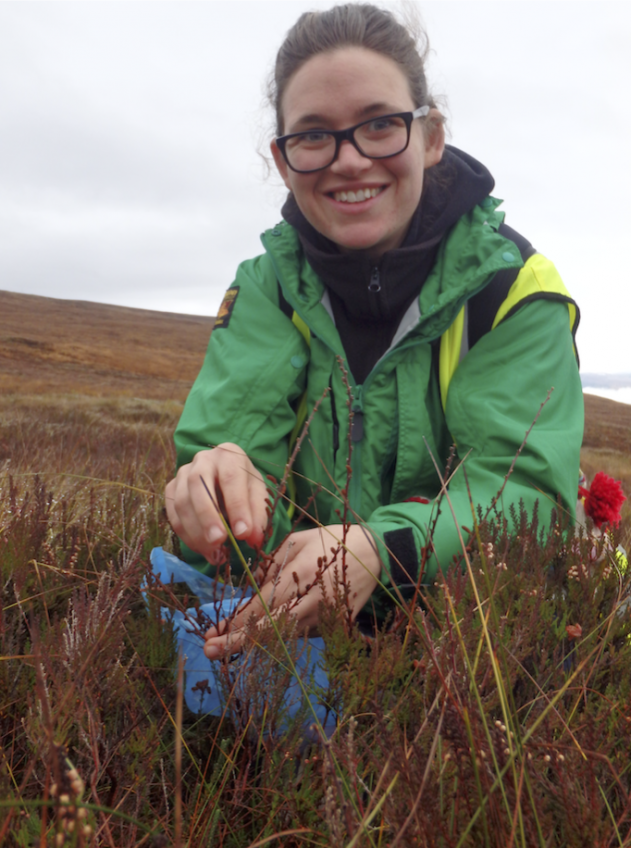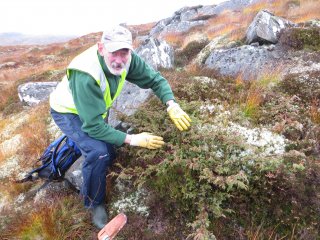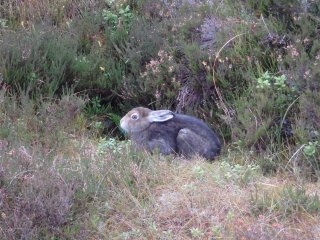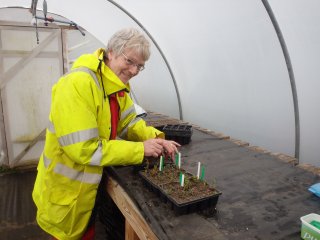Collecting Montane seeds at Fasnakyle
 Tree Nursery staff and local volunteer, Richard Hartland, recently climbed up the hill at Fasnakyle, near Cannich to collect seeds to be grown at our Tree Nursery specifically for planting in the Forestry Commission's Fasnakyle Mountain Woodland Project, for which planting will get underway in Spring of 2016.
Tree Nursery staff and local volunteer, Richard Hartland, recently climbed up the hill at Fasnakyle, near Cannich to collect seeds to be grown at our Tree Nursery specifically for planting in the Forestry Commission's Fasnakyle Mountain Woodland Project, for which planting will get underway in Spring of 2016.
We were collecting both dwarf birch (Betula nana) shrubs, which grow at around 450m elevation in this area, as well as seeds from the dwarf, prostrate form of juniper (Juniperus communis) which grows flat on the rocks on the top of the hills at around 650m.
As we climbed up above the low-lying fog, the views back to the south were spectacular with the mist lying in the glens like great lakes. There were good quantities of dwarf birch catkins on the plants, so the seed collection went well, but the highlight of the day was coming face to face with a mountain hare – which froze motionless for about ten minutes just three metres away from us!


 Dwarf birch seeds have been germinating and growing really well in the nursery in recent years, so that we have been able to supply them to several montane restoration projects, and we have also grown good quantities of juniper, but collecting seeds and cuttings from the prostrate form of juniper (which is likely to be the subspecies nana) is really a first for Trees for Life. The juniper plants were mostly fairly small, but many of them were female with a few berries, so we hope some of our collection will germinate, but we might have to wait a while to find out as juniper typically take 18 months or longer before seeds from ripe berries germinate!
Dwarf birch seeds have been germinating and growing really well in the nursery in recent years, so that we have been able to supply them to several montane restoration projects, and we have also grown good quantities of juniper, but collecting seeds and cuttings from the prostrate form of juniper (which is likely to be the subspecies nana) is really a first for Trees for Life. The juniper plants were mostly fairly small, but many of them were female with a few berries, so we hope some of our collection will germinate, but we might have to wait a while to find out as juniper typically take 18 months or longer before seeds from ripe berries germinate!
We also collected juniper seeds and cutting samples whilst we were there for Forest Research, who will use our samples in a genetic diversity study which involves juniper from sites across Britain. If they have success with the seeds germinating as well, then the seedlings will be used within a provenance trial so that they can determine whether there is evidence for adaptive trait differences in populations across Britain.

